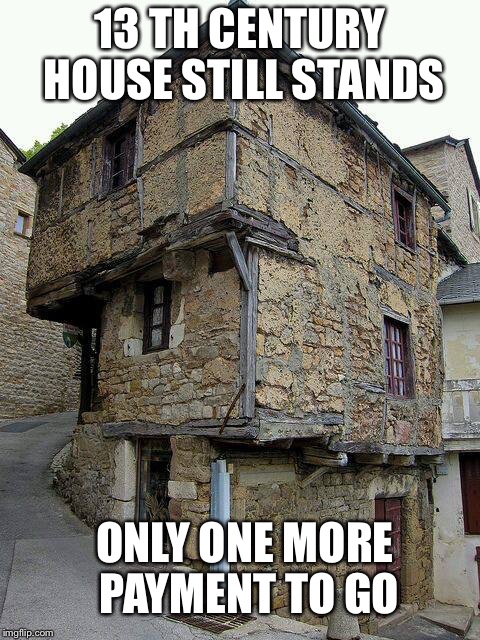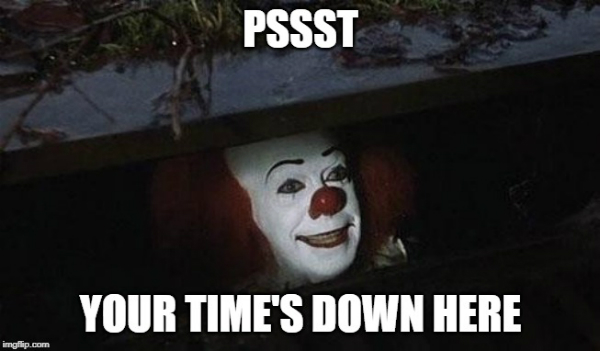Have you ever looked at rows upon rows of pristine new housing and thought to yourself – I want something with a little more character, and a little bit of a backstory?
Well, you’re not alone! Older properties offer an interesting alternative to the pristine modern developments rapidly emerging across Malaysia.
Buying a house is an exciting step, but buying an old house adds some increased complexity to your property purchase journey. Here’s why a second hand house may, or may not, be for you.
The Pros And Cons Of Buying An Old House
So what exactly does the term ‘old house’ mean?
Generally speaking, this term covers everything from abandoned colonial mansions overrun by jungle, to faded terraced housing in well-established urban suburbs.
For our purposes, we’re referring to landed property which is more than 30 years’ old, so anything that has been built before 1990.
Now that we’ve got that out of the way, let’s take a quick look through some of the benefits and challenges involved when you decide to purchase one.
The Benefits Of Buying An Old House
1) Possible Cost Saving
While some old houses are beautifully maintained bungalows transacting for millions of Ringgit, there are still many old houses which boast a more affordable price range to consider.
Faded old houses can offer potential homebuyers with a purchasing opportunity that comes with significant cost savings, providing a more affordable option than pristine new developments.
2) Investment Value
The low cost of some old houses relative to other properties in an area provides a substantial potential for return on investment.
Taking an older house and turning it into a beautifully maintained home of your own could bring significant financial rewards.
3) Transaction Time
While your friends wait years for the final sign-off on construction of their new condo, transaction times in secondary market could see a new home in your possession in just a few months.
4) Location Benefits
Land is finite (what a very Thanos thing to say!), which means a limited amount of space to build homes, thus the huge popularity in high-rise developments nowadays.
Old houses can often provide an affordable purchasing opportunity in a mature and desirable location.
5) Unique Opportunity
Old homes provide a unique opportunity to own something a little different from the rest of the crowd.
While new developments construct high-rise after high-rise with virtually identical units in perfectly polished rows, older homes provide a diversity and unique quality that’s appealing to some.
That’s especially true if you’re lucky enough to purchase a truly vintage property which has history baked into its brick walls!
6) A Customisable Opportunity
If you’re starting with an old home that needs some work, you’re also starting with a clean slate to create a unique home just for you.
The ready-to-go nature of new homes doesn’t easily lend itself to a customisable space, where an old house is often only as limited as your imagination.
And don’t forget the law, of course – you can’t be building a twelve-storey carnival house without permission!
The Challenges Of Buying An Old House
1) Can Be A Lot Of Work
While new homes are sold based on their ‘move-in’ quality, old homes can require a lot of work to develop a habitable status.
Even if you’re ready to move in at the time of purchase, chances are, there’s a lot of work to do before you turn it into the home you really love.
That’s not just a financial need, but a significant drain on your time.
2) Hidden Faults
Old houses can come with faults far beyond superficial peeling paint.
Structural shifts due to land movement, hidden leaks in piping, old wiring, and rotting timbers, are some of the major problems which could be hidden just out of sight.
3) Hazardous Materials
Renovation work can reveal some unfortunate truths, and one of those is that older homes can be built with hazardous materials.
Lead-based paint and asbestos are two of the more frequent challenges found in older homes built before a certain period.
While asbestos is not illegal for use in housing in Malaysia, owners should be aware of the significant health risks it poses. You may need a professional team to help replace these materials.
4) Financial Risk
The possibility of financial reward is inevitably tied to financial risk.
Not only could you end up spending more on renovating and repairing an old property than you originally planned, but there’s no guarantee that your efforts will be rewarded with an increase in value.
5) Potential Legal Obligations
This applies to heritage properties in certain areas. Let’s say your property is designated as part of a heritage site, you are obligated to maintain that property to a certain standard.
That means you may be legally obligated to undertake costly repairs and maintenance as a result of your ownership.
Turning An Old House Into A Good Investment
The idea of financial return is obviously a big part of the pros and cons of buying an old house.
If you’re purchasing a house in a desirable area for RM1 million, renovating it for RM500,000 worth of your time and effort, and selling it on for RM2 million at the end, you can see why some people might be tempted by this equation.
Of course, an old house is also a great place to make a new home. So, the financial return in that case might be more of a long-term investment bonus.
Either way, here are some key steps to ensure you maximise the potential for a financial return on your investment.
1) Consider A Survey
A professional survey can go a long way to addressing some of the fears of hidden faults or hazardous materials noted above.
While surveys do cost money, they might save you a whole lot more in the long run. Consider a survey before committing to a purchase, particularly if the house is in a state of disrepair.
2) Do Your Research
Understanding the neighbourhood and the history of the house can also be important.
Don’t be afraid to talk to neighbours, see if you can track transaction values online, or just find out a bit more about the area – past, present, and (if possible) future.
3) Compare Values
If you’re buying an old house as a potential investment, it’s good to understand what the end-goal of that investment might be.
Take time to research similar properties in the area and understand what price ranges they might be selling for.
4) Plan Your Costs
If you’re taking on a significant renovation job you need to understand your costs in advance. Make a detailed plan of the costing for your work, with professional estimates if required.
5) Check The Law
It may be you need legal permission for some of your renovations, particularly if you’re in a heritage property, or if you’re looking to extend or add structures to your home.
Make sure you understand the regulation before you commit.
6) Don’t Cut Corners
It might be tempting to cut corners and save costs on improving your home, but the chances are that will come back to bite you later on.
Make sure that quality is at the centre of your renovating efforts, both in terms of the experts you employ, and the materials you use.
That doesn’t mean paying extra for luxury fittings, it means ensuring a safe, sturdy home for the future.
Buying an old house is a question of risk and reward. Some people want a unique property to call their own, while others are looking to benefit from an attractive return on investment that an old house may bring. Whatever the reason, why not find the perfectly charming old house for you today?
Keep Track of New Launches
Visit our new launches page to find the new launch project of your dreams and submit an enquiry today.

Disclaimer: The information is provided for general information only. PropertyGuru International (Malaysia) Sdn Bhd makes no representations or warranties in relation to the information, including but not limited to any representation or warranty as to the fitness for any particular purpose of the information to the fullest extent permitted by law. While every effort has been made to ensure that the information provided in this article is accurate, reliable, and complete as of the time of writing, the information provided in this article should not be relied upon to make any financial, investment, real estate or legal decisions. Additionally, the information should not substitute advice from a trained professional who can take into account your personal facts and circumstances, and we accept no liability if you use the information to form decisions.






